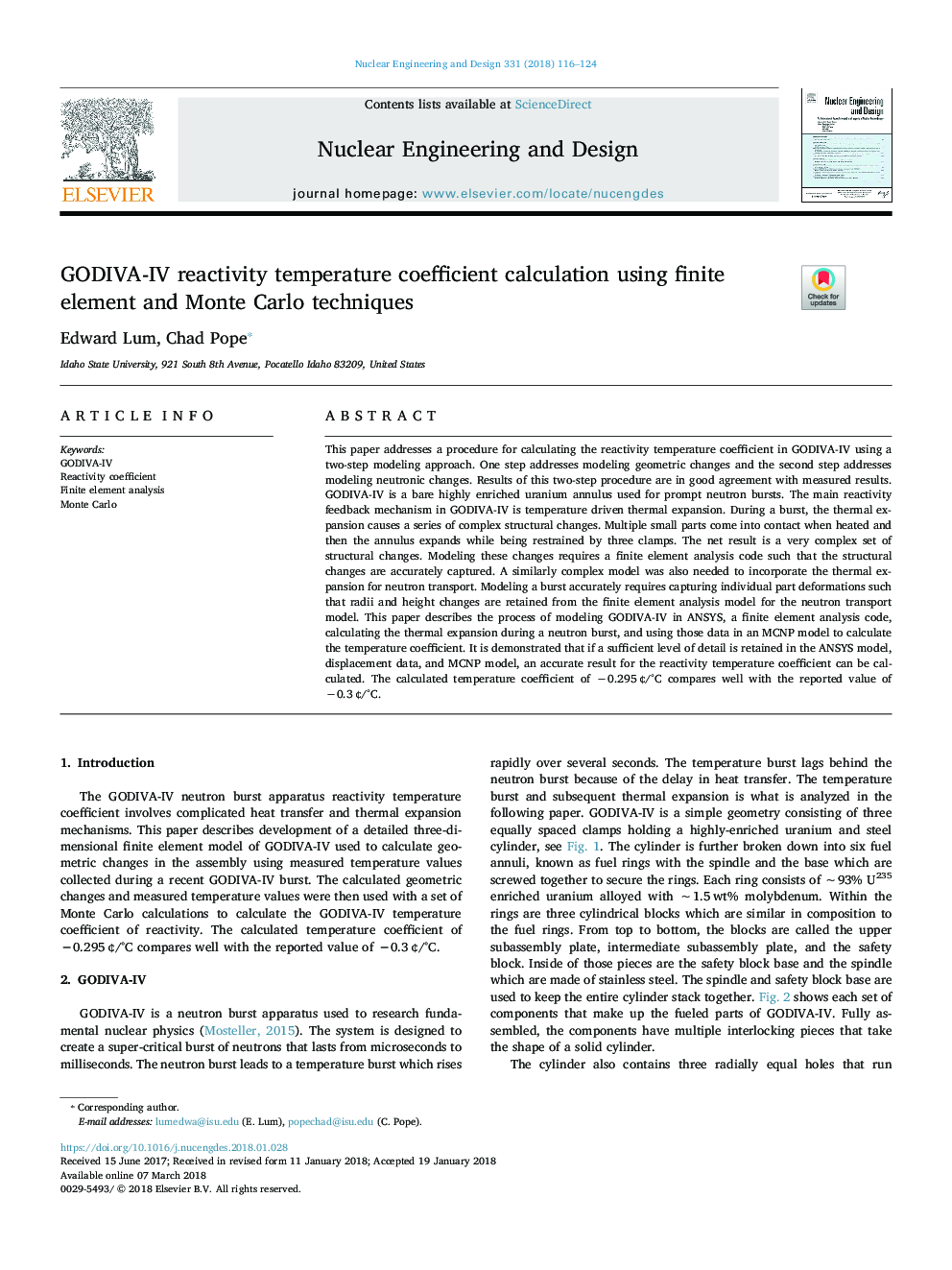| کد مقاله | کد نشریه | سال انتشار | مقاله انگلیسی | نسخه تمام متن |
|---|---|---|---|---|
| 6758882 | 1431390 | 2018 | 9 صفحه PDF | دانلود رایگان |
عنوان انگلیسی مقاله ISI
GODIVA-IV reactivity temperature coefficient calculation using finite element and Monte Carlo techniques
دانلود مقاله + سفارش ترجمه
دانلود مقاله ISI انگلیسی
رایگان برای ایرانیان
کلمات کلیدی
موضوعات مرتبط
مهندسی و علوم پایه
مهندسی انرژی
مهندسی انرژی و فناوری های برق
پیش نمایش صفحه اول مقاله

چکیده انگلیسی
This paper addresses a procedure for calculating the reactivity temperature coefficient in GODIVA-IV using a two-step modeling approach. One step addresses modeling geometric changes and the second step addresses modeling neutronic changes. Results of this two-step procedure are in good agreement with measured results. GODIVA-IV is a bare highly enriched uranium annulus used for prompt neutron bursts. The main reactivity feedback mechanism in GODIVA-IV is temperature driven thermal expansion. During a burst, the thermal expansion causes a series of complex structural changes. Multiple small parts come into contact when heated and then the annulus expands while being restrained by three clamps. The net result is a very complex set of structural changes. Modeling these changes requires a finite element analysis code such that the structural changes are accurately captured. A similarly complex model was also needed to incorporate the thermal expansion for neutron transport. Modeling a burst accurately requires capturing individual part deformations such that radii and height changes are retained from the finite element analysis model for the neutron transport model. This paper describes the process of modeling GODIVA-IV in ANSYS, a finite element analysis code, calculating the thermal expansion during a neutron burst, and using those data in an MCNP model to calculate the temperature coefficient. It is demonstrated that if a sufficient level of detail is retained in the ANSYS model, displacement data, and MCNP model, an accurate result for the reactivity temperature coefficient can be calculated. The calculated temperature coefficient of â0.295â¯Â¢/°C compares well with the reported value of â0.3â¯Â¢/°C.
ناشر
Database: Elsevier - ScienceDirect (ساینس دایرکت)
Journal: Nuclear Engineering and Design - Volume 331, May 2018, Pages 116-124
Journal: Nuclear Engineering and Design - Volume 331, May 2018, Pages 116-124
نویسندگان
Edward Lum, Chad Pope,